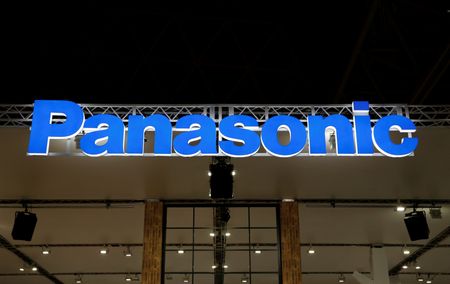 1
1 1
1

By Tim Kelly
TOKYO (Reuters) – Panasonic Corp forecast on Wednesday flat operating profits this business year as component shortages and rising material costs continue to pose a risk to earnings.
The Japanese company predicted operating profit of 360 billion yen for the year to March 31, 2023, little changed from the 357 billion it made in the previous business year.
The forecast is 5.9% lower than the mean estimate of 382.7 billion yen from 20 analysts, Refinitiv data shows.
Panasonic makes products ranging from washing machines to industrial machinery.
Like others, it has been hurt by materials prices that shot higher after Russia’s invasion of Ukraine. Chief Executive Officer Yuki Kusumi said last month the company could not pass all of the price rises on to customers.
It has also been tackling continued shortages of components caused by the COVID-19 pandemic, with strict lockdowns in China spurring concerns of fresh supply chain disruptions.
For its Energy unit, which makes automobile batteries for Tesla Inc, it expects electric vehicle demand to grow and will try to mitigate the higher cost of metals, including lithium, nickel and cobalt, through “price revisions” and “rationalization”. It did not elaborate on that point.
Panasonic also noted risks of suppliers’ factory lockdowns due to COVID-19 and the international situation.
Panasonic supplies batteries to Tesla along with China’s Contemporary Amperex Technology Co Ltd and South Korea’s LG Energy Solution. It plans to build a mega-factory in the United States to build a new and more advanced battery for Tesla, Japanese public broadcaster NHK reported in March.
The battery, of 4680 format (46 millimetres wide and 80 millimetres tall), is about five times bigger than those that Panasonic currently supplies, meaning Tesla should be able to lower production costs and improve vehicle range.
In the three months to March 31, Panasonic posted operating profit of 83.3 billion yen, compared with a profit of 31.8 billion yen a year earlier. That result was worse than a mean estimate of 85.5 billion yen profit from nine analysts surveyed by Refinitiv.
SUPPLY CHAIN SOFTWARE LISTING
In a separate announcement, Panasonic said it planned to list shares of its supply chain management unit to raise funds to invest in the business.
That sale will include Blue Yonder, a U.S. company that uses machine learning it bought last year for $7.1 billion, bundled with other supply chain services in Panasonic.
It did not say when a stock sale would occur or how much it planned to raise.
Panasonic has expanded into supply chain software, a market it expects to double in size over the next five years, as it shifts away from producing low-margin consumer electronics.
(Reporting by Tim Kelly; Editing by Bradley Perrett and Mark Potter)